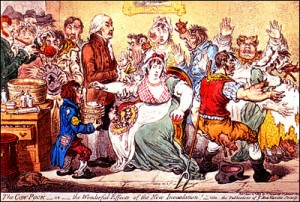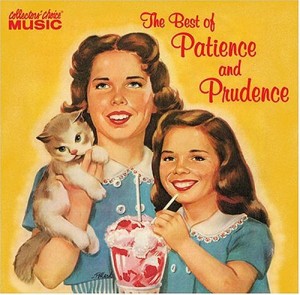Without question, one of the more feared contagious respiratory diseases of the horse is infection with a bacteria called Streptococcus equi. More commonly, this infection is called “strangles.”
Personally, I think the name is one of the biggest parts of the problem. I mean, who wouldn’t be afraid of a disease with a name like “strangles?”
Strangles is an icky,* messy disease that makes some horses really sick: it even kills a few (for what it’s worth, so does just about every other infectious disease). But I think that it’s the fact that infected horses look so awful – combined with the name – that seems to make horse owners panic about strangles more than just about any other disease that’s caused by a bacteria or a virus. It is one of the most commonly diagnosed contagious diseases of the horse, and it occurs throughout the world. Strangles has been around horses for a long, long time. As far as anyone can tell, it was first reported way back in 1251, or about the same time that the Mongols were rapidly expanding their empire, or Stockholm, Sweden was founded.
 Horses that are sick with strangles typically develop a fever (temperature >101.0ºF), go off feed, and have a snotty nose (just like many respiratory infections) but they quickly develop large, swollen, sore lymph nodes in the space between the lower jaw bones. These lymph nodes eventually abscess, and discharge a lot of pus, which is icky. Then, most of them recover.
Horses that are sick with strangles typically develop a fever (temperature >101.0ºF), go off feed, and have a snotty nose (just like many respiratory infections) but they quickly develop large, swollen, sore lymph nodes in the space between the lower jaw bones. These lymph nodes eventually abscess, and discharge a lot of pus, which is icky. Then, most of them recover.
Things can get worse. The infection can spread to other lymph nodes, including lymph nodes inside the horse’s body. This can be a HUGE problem if they rupture internally. Infection of internal lymph nodes has been colorfully called “bastard” strangles presumably because, well, it can be a real bastard to treat; those horses typically have to be given antibiotics for a long time. Another occasional complication is caused by a fired-up immune system (that’s called purpura hemorrhagica). Oh, and infected horses can sometimes develop muscle soreness (myositis); infected lactating mares can sometimes stop producing milk.
That’s just the facts.
And, of course, there are a lot more facts – the best single source of information about the disease, control, etc., is probably the consensus statement issued by the American College of Veterinary Internal Medicine, back in 2005. You can access that statement if you CLICK HERE.
TRIVIA FACT: Did you know that the Jack Webb character on the 1950’s TV hit Dragnet never actually said, “Just the facts, m’am?”
 Facts notwithstanding, here are three truisms about strangles.
Facts notwithstanding, here are three truisms about strangles.
1. Nobody wants their horse to get strangles.
2. Everyone gets worried when their horse gets strangles.
3. Everyone gets worried that there horse is going to get strangles when someone else’s horse gets strangles.
Given all the above, and the fact that those truisms are often independent of the facts about the disease, there are some things that people do and think that maybe they shouldn’t do or think. They are popular but probably not helpful – horse health myths, as it were. (Horse health myths are so popular in the horse world that I wrote my first book, Horsefeathers, about some of them. CLICK HERE to see that book. It’s still pretty much on point – although revising it is another thing that’s on my “to do” list.) Let’s see what we can do about some of them.
1. Vaccination is a good way to prevent strangles. (Doesn’t seem to be.)

In this cartoon from 1802, the British satirist James Gillray implied that vaccination caused people to become part cow.
Without question, vaccination is one of the most important things that has ever been done to help improve the health of most species on the planet. So, for examples, vaccination plays an important role in large-scale commercial fish farming.** Smallpox has been eliminated thanks to vaccination, and polio, a scourge of people just half a century back has largely been eliminated (why it hasn’t been completely eliminated is actually a pretty sad story that you can read about it you CLICK HERE).
Many vaccinations have been tried – not all of them work, however. In human medicine, before a vaccine can be sold for use to prevent disease, it has to be tested to see if it works. Somewhat amazingly, that’s not the case in horses.
So, when it comes to horses, there are currently two types of strangles vaccines. One is given in the muscle; one is squirted up the horse’s nose. Both have reported complications (to be fair, so do most vaccines), but here’ s the thing. There’s no good evidence that either vaccine prevents strangles. In fact, most countries in the world don’t vaccinate against strangles, and there’s no evidence that the disease rate is any different in those countries.
I personally don’t recommend that any of my clients use any of the strangles vaccines on their horses. It’s one of those things were there’s not much evidence that it does any good, and there’s some evidence that it can cause harm (in terms of reactions, or, in the case of the vaccine, even conversion of the bacteria used to the disease itself). I think that the vaccine provides a false sense of security, and does little, if anything, to prevent the disease. I just don’t see the point – and, of course, I am not at all against vaccination.
2. If your horse – or a group of horses – is near a horse with strangles, vaccinate him/them immediately. (Probably not.)
One of the complications of strangles is an immune reaction called purpura hemorrhagica. When your horse has been exposed to the strangles bacteria, his immune system is going to take notice; that’s a big part of horse your horse gets rid of the disease. But the immune system is not something to trifle with, and stimulating his immune system by vaccination in the face of disease appears to be the immunological equivalent of playing with fire. In fact, there is significantly increased risk of purpura reactions in horses that have been exposed to strangles and then vaccinated.
BY THE WAY, ANOTHER QUESTION: Don’t horses develop immunity after they’ve been sick? Yes. In horses that have recovered from being sick with strangles, 75% of animals will remain immune for 5 years or longer. If you’re really worried, a diagnostic test is available that can be helpful in checking the level of immunity that is caused by natural exposure (or even vaccination, if you insist). Ask your veterinarian about it.
3. The infection spreads through the air. (Nope.)
Strangles is spread by direct contact: contact with things such as snotty noses, contaminated halters, shared water troughs, or dirty human hands. It isn’t spread by particles that get blown into the air (which is how viral diseases like influenze, or EHV-1 spread). As such, stall walls, or isolation, serve as pretty effective barriers to the transmission of the disease. Otherwise stated, if your horse is in one barn, and a horse that’s sick with “strangles” is in another barn, your horse will probably be OK. Just don’t walk your horse over to rub noses with the sick one (or that sort of thing).
4. Antibiotics cause horses with strangles to get “bastard” strangles. (Nope – again).
There seems to be this general idea that antibiotics are the worst thing possible for horses with strangles. In particular, there’s a myth that giving horses with strangles antibiotics will make the bacteria run and hide, that is, it will make the affected horse more likely to get internal abscesses “bastard” strangles.
There’s no evidence that’s true,*** but antibiotics should be used judiciously when treating horses with strangles. For example, it’s generally thought that if you give a horse with an abscess strangles, you’ll just delay the opening and draining of the abscess. You don’t want to do that.
Antibiotics can be a very good thing, too. It has been shown that penicillin given early – prior to the development of abscesses, when horses only have a fever – can prevent the full-blown disease. But, of course, you don’t want to do any antibiotic treatments of this disease – or any other disease – without consulting first with your veterinarian.
 Look, strangles is no joke. It can be a real problem for herds of horses that aren’t carefully managed, and for individual horses that can get really sick. If your horse has strangles, or if there is strangles at your facility, it’s worth a careful and comprehensive approach to getting rid of the problem, directed by your veterinarian. Such an approach includes:
Look, strangles is no joke. It can be a real problem for herds of horses that aren’t carefully managed, and for individual horses that can get really sick. If your horse has strangles, or if there is strangles at your facility, it’s worth a careful and comprehensive approach to getting rid of the problem, directed by your veterinarian. Such an approach includes:
1. Isolating and treating sick horses.
2. Quarantining incoming horses before introducing them to a herd.
3. Identifying and treating carrier horses if a herd has a chronic problem.
4. Using good hygiene measures to prevent transmission.
Strangles is a serious disease, but control of the disease requires careful, thoughtful management of the entire herd and premises. Get your veterinarian involved. Don’t just go about vaccinating horses and giving them antibiotics indiscriminately. Know the facts, and you can more effectively tackle the disease head on!
***********************************************************************************************************
* Icky is not a medical term. The term originated in 1935, probably from another slang term, icky-boo (from around 1920) , meaning “sickly, nauseated.” It’s probably baby talk for sick. Originally “icky” was a swing music lover’s term for more sentimental jazz music, but it became more widely used starting around 1938. So now you know.
 ** I thought long and hard about including a link. I thought, “Does anyone really want to read about fish vaccines? Isn’t enough that that people know that there are fish vaccines?” But then I thought, “If you don’t include a link, someone is going to ask.” So, for any of you who want to read about commercial fish vaccines, CLICK HERE, and you don’t have to ask. You’re welcome.
** I thought long and hard about including a link. I thought, “Does anyone really want to read about fish vaccines? Isn’t enough that that people know that there are fish vaccines?” But then I thought, “If you don’t include a link, someone is going to ask.” So, for any of you who want to read about commercial fish vaccines, CLICK HERE, and you don’t have to ask. You’re welcome.
*** I traced this idea in the veterinary literature once. It goes back to a human conference on streptococcal diseases, where two veterinarians, who were invited to attend, said (in effect), “We think that if you give antibiotics to horses with strangles, it will make them more likely to get bastard strangles? From there, it entered the veterinary literature, and there you go. I even wrote a paper about this idea a few years back. You can read about it if you CLICK HERE.










